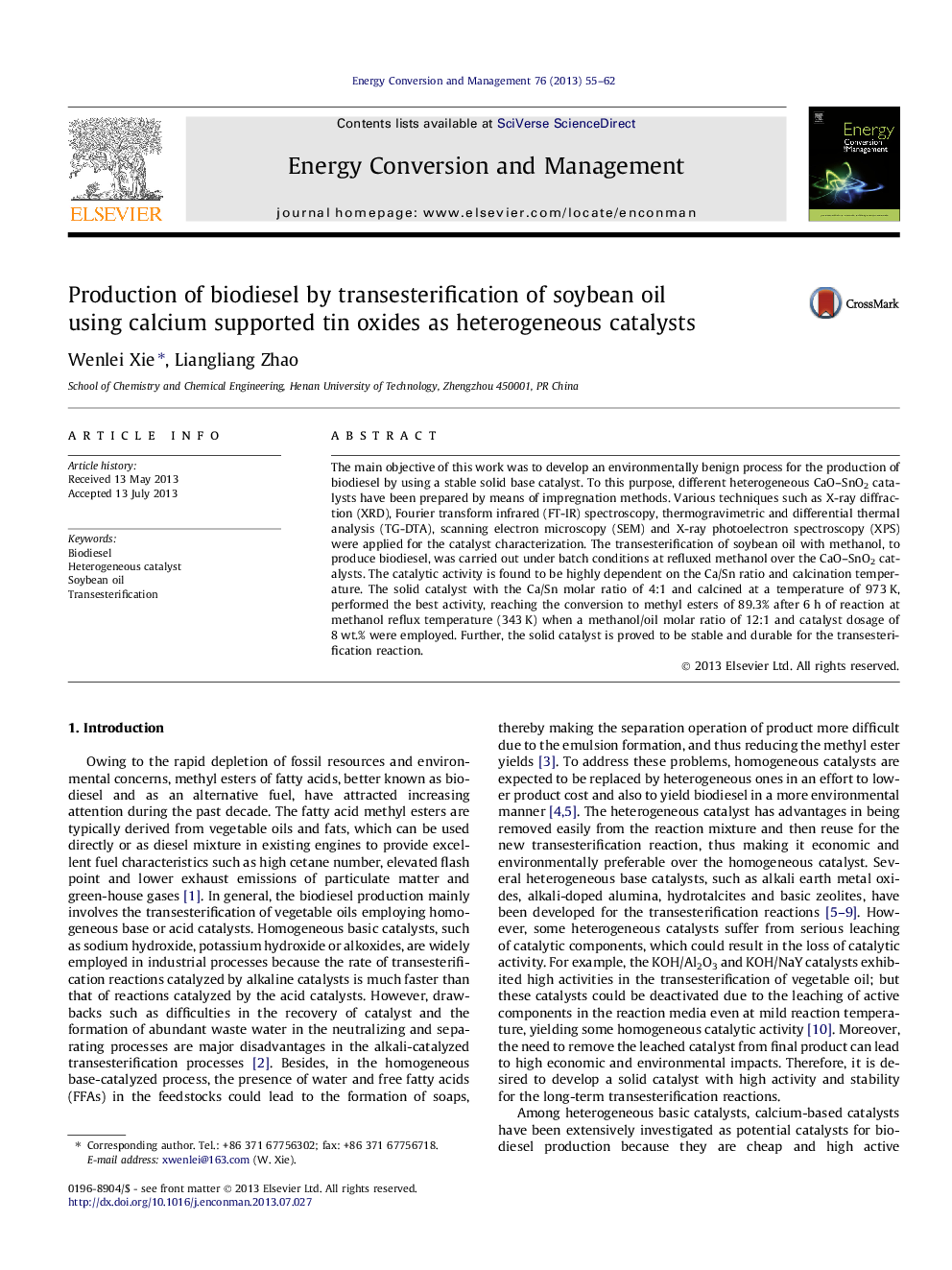| Article ID | Journal | Published Year | Pages | File Type |
|---|---|---|---|---|
| 760760 | Energy Conversion and Management | 2013 | 8 Pages |
•Heterogeneous catalysts were prepared by an impregnation method with different conditions.•The catalysts were efficient in the soybean oil transesterification.•The catalytic activity and stability of the catalyst were investigated.
The main objective of this work was to develop an environmentally benign process for the production of biodiesel by using a stable solid base catalyst. To this purpose, different heterogeneous CaO–SnO2 catalysts have been prepared by means of impregnation methods. Various techniques such as X-ray diffraction (XRD), Fourier transform infrared (FT-IR) spectroscopy, thermogravimetric and differential thermal analysis (TG-DTA), scanning electron microscopy (SEM) and X-ray photoelectron spectroscopy (XPS) were applied for the catalyst characterization. The transesterification of soybean oil with methanol, to produce biodiesel, was carried out under batch conditions at refluxed methanol over the CaO–SnO2 catalysts. The catalytic activity is found to be highly dependent on the Ca/Sn ratio and calcination temperature. The solid catalyst with the Ca/Sn molar ratio of 4:1 and calcined at a temperature of 973 K, performed the best activity, reaching the conversion to methyl esters of 89.3% after 6 h of reaction at methanol reflux temperature (343 K) when a methanol/oil molar ratio of 12:1 and catalyst dosage of 8 wt.% were employed. Further, the solid catalyst is proved to be stable and durable for the transesterification reaction.
